Results for ""
One of the cornerstones of modern innovation is cross-industry collaboration. And Prem Viswalath experienced this first-hand when he met a local municipal officer in Hyderabad as a desperate citizen seeking help to address the mosquito menace that his neighbourhood was perennially engulfed in. "The officer and I got to talking and when I mentioned being an IIT grad, he perked up and asked us – as techies – to find a modern approach to the problem. I was immediately intrigued by this idea and started my journey. While looking for solutions, I found out that the existing techniques haven’t been revised in over half a century. Once I understood the spread of mosquito problem, drones were the obvious way ahead," says Vislawath Since then, Marut Drones has come a long way.
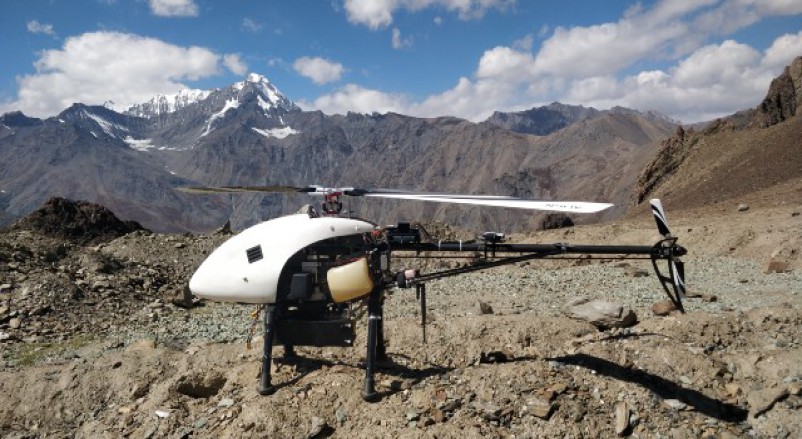
(The Hepicopter built by Marut Drones)
Founded by a team of IIT Guwahati alumni and based in Hyderabad, Marut Drones is building solutions to scale drone operations primarily in agriculture, healthcare and surveillance. Founder and chief innovator Vislawath is keen on developing sustainable, cost-efficient technologies for drone copters. "All our products and solutions are devised with scalability and sustainability as key pillars. We ensure sustainability through scientifically established solution, adhering to SDG goals and targets while leveraging the latest technology to optimize resource consumption," he says.
Marut Drones offers these solutions - Marut ZAP, a commercially available mosquito eradication and AI-backed disease prediction system; Seedcopter or MarutGro that is a scalable reforestation drone; Hepicopter or Marut Medico that's a drone to ferry medical supplies with ease and Agricopter, a drone for agriculture. Recently, Surveycopter was added, which leverages AI and ML for enhanced surveillance. In response to the pandemic, Marut COVID19 was launched last year, and has since been extensively used for disinfection, movement tracking, thermal analysis, medical delivery of supplies and general surveillance.
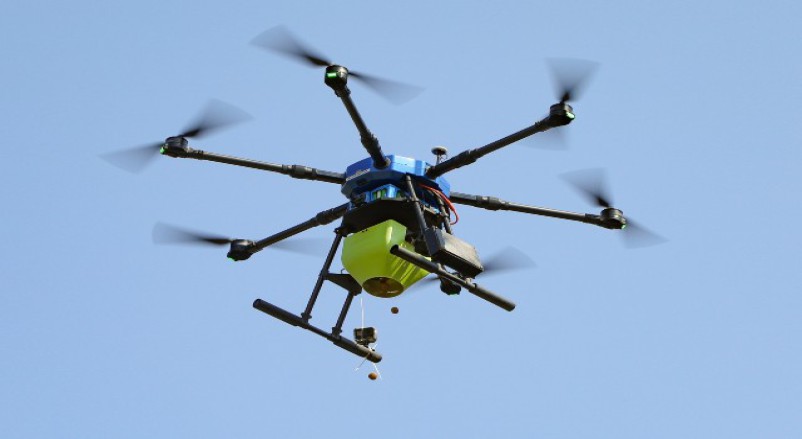
(The Seedcopter)
However, Vislawath says their leading products are Marut ZAP and Agricopter. "Malaria and dengue today are household words. And more names like Chikunguniya and Zika have been added. The problem is not restricted to India or tropical countries, it is global and affects the affluent as easily as the poor. Marut ZAP is aimed at resolving two major issues with existing challenges - firstly, present methodologies are labourious, old and often hazardous to field workers. Another is that there is near zero authentic data capturing and synchronous workflow. Marut ZAP’s disease prediction system helps local authorities of potential disease outbreaks and take necessary precautions. Moreover, this technology reduces manual intervention, saving workers from harmful chemicals thereby creating a safe working environment," he explains.
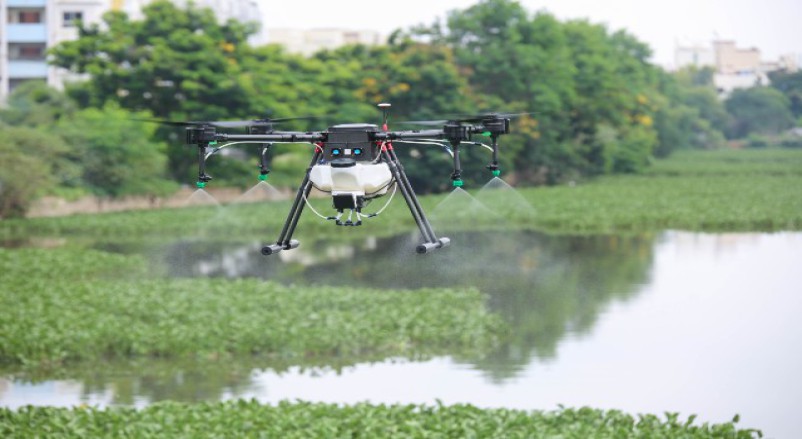
(Marut ZAP for disease eradication)
The IoT-enabled device provides the municipal authorities key insights into the gender, type of mosquito larvae, density and the kind of disease they carry. The ground-breaking solution to solve the mosquito menace involves sending real-time data to the AI platform and identifying high-risk and low-risk areas using predictive analytics. The ZAP platform based on mosquito IoT sensor creates mosquito maps by location, gender, species and subspecies and offers real-time reports to identify high and low risk areas using predictive analytics for diseases like malaria, dengue and chikungunya. It issues critical alerts on emergency situations and disease outbreaks, facilitating intervention programs. Intervention mechanisms are backed by AI-powered customized drones and GPS tagged thermal fogging systems. Drones spray bio larvicide on lakes, which are a major breeding habitat for mosquito larvae. Data can also be leveraged to work with local communities and conduct appropriate awareness campaigns. Overall, ZAP platform creates a comprehensive vector borne disease control mechanism.
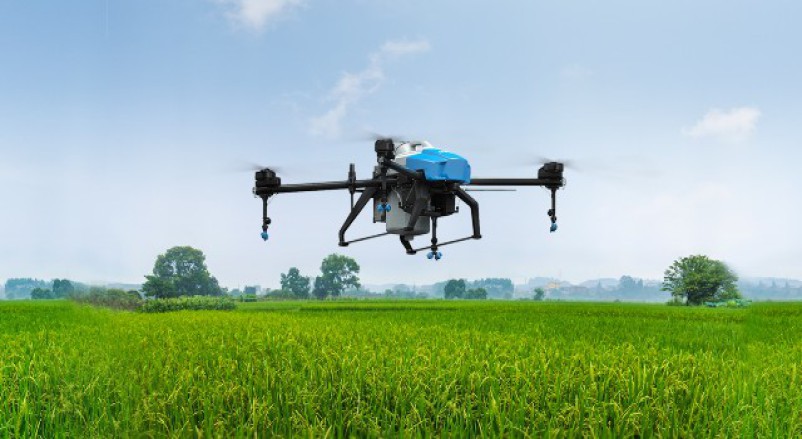
(The Agricopter)
Meanwhile, lower agricultural productivity and farmer’s distress continue to plague the agriculture sector but drones and AI-based data applications can provide added benefits like raising crop productivity, improving farmers incomes and being environmentally sustainable. Marut Drones' Agricopter uses data analytics and machine learning to facilitate early detection of crop stress and ensure targeted spraying. This not only improves the crop productivity but also reduces crop losses and brings down farmers risk. Drone imaging combined with machine learning algorithms scan crops to identify crop stress areas. This information ensures spraying activities are precise, targeted and minimal. "We are also working to evolve India's first SoPs for drone-based spraying. This is expected to standardise drone operations all around. We are happy to partner with premier research institutes like ICRISAT for intelligence aspects and PJTSAU for automation solutions," says Vislawath.
The main articles in Marut's stack comprise data analytics, IoT, AI and machine learning. With these as base, the team uses other technologies like high spectral imaging, LIDAR, GIS and others. AI data crunchers are used in all verticals although the applications vary quite a bit. For instance, Marut ZAP uses AI from identifying locations and prevalence of mosquitoes to identifying their species and genders. For Agricopter vertical, AI is used in the intelligence field, especially in multi-spectral phenotyping of various crops and deriving specific actionable inputs. For Seedcopter, the team relies on AI to understand and extrapolate historical site data and ecological diversity of the region and for Hepicopter, AI algorithms are towards solving logistic problems in the space and optimizing the distribution of various medical stocks – blood, vaccinations and diagnostics to start with. For Surveycopter, AI is used to auto-detect and flag anomalies in the utilities like transmission lines, pipelines and renewable energy plants.
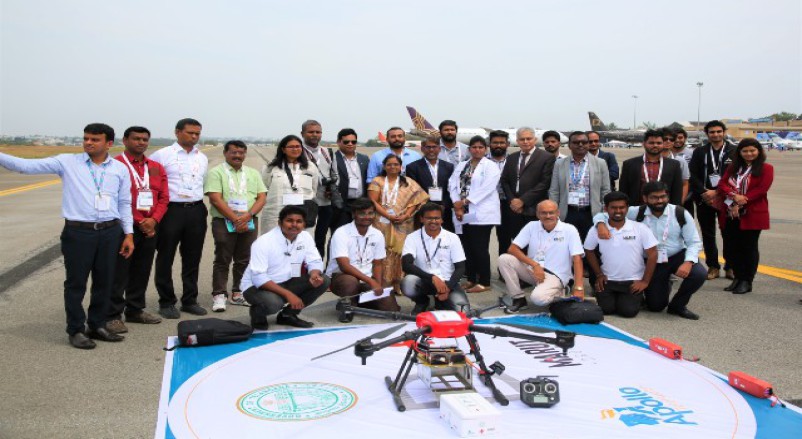
(A medical drone delivery pilot executed by Marut Drones in collaboration with Govt of Telangana, WEF and Apollo Hospitals)
The existing regulatory challenges in drones are still evolving but the utility of commercial-use drones far outweigh the hurdle of compliance, as seen in areas like healthcare, surveillance and agriculture. Another challenge is the lack of skilled pilots and engineers as commercial drones are relatively new. To address this problem, Marut Drones has partnered with the Govt of Telangana to start a drone training academy that will create a talent pool beneficial to the larger drone ecosystem.
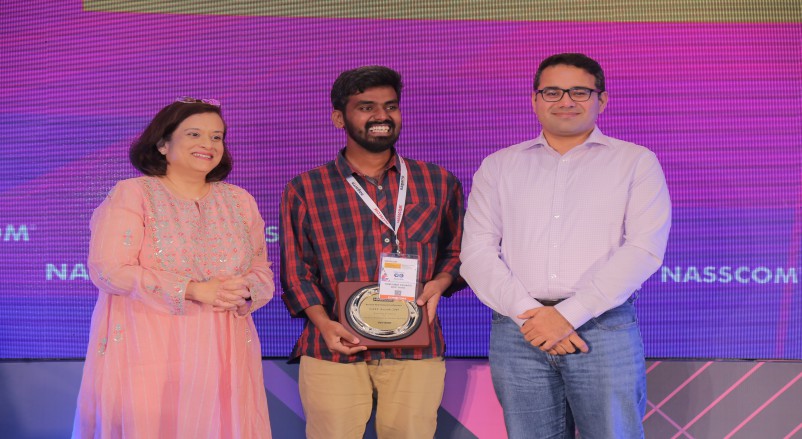
(From left: Debjani Ghosh, President, NASSCOM; Prem Kumar Vislawath, Founder, Marut Drones & Kunal Bahl, CEO, Snapdeal at NTC 2019)
Marut Drones has been listed in the prestigious Forbes 30U30 list, won Facebook India's Innovation Accelerator Program 2019 for AI for Social Good and the Emerging Technology Award at the 6th Nasscom Technology Conference (NTC); and recognised by GoI AGNii as one of India's top 26 solutions to fight COVID19. The startup was incubated in T-Hub and mentored by IIIT Hyderabad and RICH.






